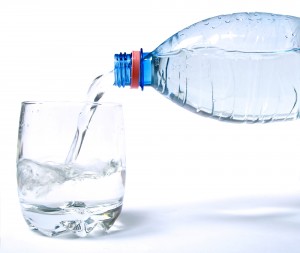Posts Tagged ‘laps’
How’d you like to burn 350-500 calories per hour, doing something that’s refreshing and widely available? If your answer’s yes, then go put on your swimsuit and keep reading. Swimming is great exercise, whether you do it casually or in a serious, “endurance sport” manner.
 Triathletes must make diet their primary focus if they want to significantly improve their performance. But for any type of athletic conditioning, nutrition is at least 80 percent of the formula, and training makes up no more than 20 percent.
Triathletes must make diet their primary focus if they want to significantly improve their performance. But for any type of athletic conditioning, nutrition is at least 80 percent of the formula, and training makes up no more than 20 percent.
Keys to the 80/20 formula are quality, quantity, and timing of nutrients … learning not only what to eat but also “how and when” will maximize results in triathlons, multiple-sport activities, and even for recreational exercisers. Developing good eating habits every day can make the difference between great training/exercise/events, and just struggling through.
Note that I said “habits.” Eating well can become a habit over time, one you no longer have to think about, or feel burdened by in any way. Commit to the concept of positive, life-enhancing, sport-enhancing long-term change through diet, and over time, you will develop this good habit just as easily as people develop bad ones.
Now, back to the pool. Is there any truth to the phrase “no swimming until one hour after you’ve eaten?” Yes, a bit, but only if you’re planning on swimming with extreme intensity, as in a triathlon.
Recreational swimming falls in a different category. You, your children or grandchildren can all swim or play in the pool after eating. Frolicking with a full belly is perfectly safe.
In fact, if you plan to swim in the morning – especially just after rising from a night’s sleep – eat something. Engaging in vigorous exercise on an empty stomach will cause you to suffer. You’ll feel weak, possibly dizzy, perhaps sick to your stomach. Certainly your workout will be a poor one and most likely will have to be cut short.
After sleep, your blood sugar is low. So have a snack before you hit the pool.
Swimming is less demanding than running or cycling for pre-activity nutrition. Even fruit, toast or a sports drink will do, to elevate the blood sugar a bit. Hydration before or during swimming is not much of an issue because you won’t overheat in water, but hydration after swimming restores electrolyte balance.
In all three triathlon sports, post-workout nutrition should occur within 30 minutes of stopping, when the body is most receptive to carbs for replacing glycogen lost during the workout. Ingesting protein will help muscles recover and rebuild stronger.
Women swimmers especially need to be aware of the potential for iron and/or calcium deficiencies. Lacking either or both of these essential minerals will affect performance.
Remember the 80/20 rule and decide now to develop good habits. It does not matter how hard or how much you exercise; good nutrition and healthy eating habits are the crucial component. Next week we’ll discuss nutrition for cycling.


Follow Us!